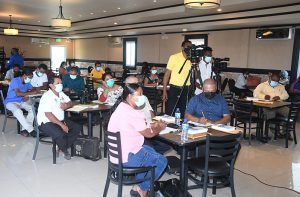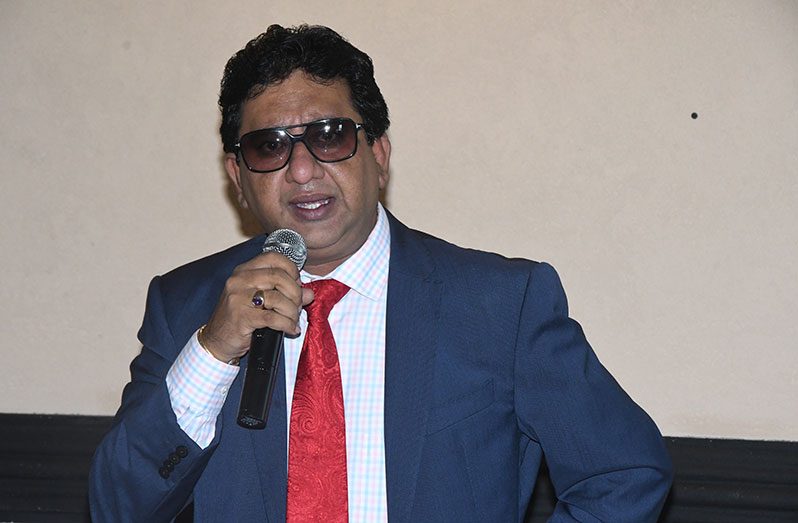— training commences for Amerindian leaders
ALL probation officers and teachers will eventually be trained on restorative justice to ensure less imprisonment since such punishment has not been a deterrent to crime. This is according to Minister of Legal Affairs and Attorney-General, Mohabir Anil Nandlall, during his remarks at the opening ceremony of the Training of Facilitators in Restorative Justice. The event, which targets Amerindian village leaders, commenced on Wednesday at the boardroom of Sleep-in Hotel, Church Street, Queenstown, Georgetown. The Inter-American Development Bank (IDB) is supporting Guyana in training teachers, probation officers and community leaders in reforming offenders. The Restorative Justice Programme dates back to 2018, when experts began collecting data from various stakeholders.
The main objective of restorative justice is to reduce the prison population in Guyana.

“It is one of the new innovations that the experts have come up with to deal with criminal behaviour, violent conduct, deviant conduct etc. It has been found that the traditional theories and methods of dealing with criminal behaviour and violent conduct have not yielded the results anticipated,” the Attorney-General said.
He noted that the theories and methodologies of punishment and reform have not yielded the type of success needed for the development of society.
Nandlall noted that over the centuries, there has not been any discernable decline in criminal, deviant and violent conduct.
“In fact, there may have been an increase or an upswing in these unfortunate atrocities, so clearly, the conventional old method that have been used and are still being used in most quarters of the world have not delivered,” he explained.
As a result, the Legal Affairs Minister said sociologists, psychologists and criminologists have been forced to find other methods, theories, strategies, and plans to address the issue. In sharing an example, the Attorney-General said if someone is charged for murder, restorative justice “goes back to understand, examine, to evaluate what were the causal circumstances, the factors that would have agitated the murderous act and it tries to address that or those social issues.”
Another component of restorative justice, he said, brings the offender and victim together to “melt the ice of hate and animosity” that may lead to more violence and more incarceration.
TRASH OUT DIFFERENCES
“Restorative justice puts the two parties together and have them trash out their differences and to do a retrospection by themselves to understand what caused the violence in the first place,” Nandlall said.
The Legal Affairs Minister said, originally, 100 persons were earmarked for training and some of those who benefitted from the programme included teachers, religious leaders, judicial officers and probation officers.
He said that currently, after the Amerindian leaders complete their training, they are expected to return to their respective communities and practise what they learned at the training sessions.
“We believe that restorative justice is so important that we should spread the programme even wider, as a result, we have written to the Minister of Human Services and we are requesting a partnership with the ministry that will allow us to train every probation officer in the country,” he noted.
When a probation officer intervenes in disputes, the Attorney-General said their skill and training will extend with restorative justice.
Further, he said that the Education Ministry was also contacted to partner in training all teachers countrywide.
“We have trained some as we have done some probation officers, but we believe that the programme can have its fullest impact if we are able to train all the teachers in our country, because while we are dealing with the situation at the adult level, where better to begin, than at the level of the children in the school to target the next generation, so that the next generation will grow up not like this generation without the benefit of restorative justice training,” he explained.
He noted that restorative justice can begin to play an early part in the formative years of childhood and when the seed is planted, it will have a positive effect and impact in keeping them away from the prisons “because that is the ultimate objective of the programme”.
Most importantly, he noted that a batch of persons will be trained to be trainers and conduct such required sessions in the future as not to only depend on foreign consultants for guidance. Additionally, the Attorney-General said there will be a scholarship programme for the field and areas of restorative justice.




.png)









